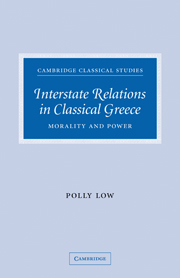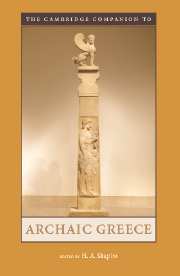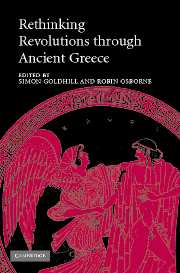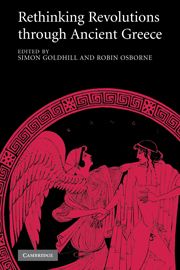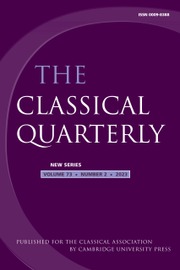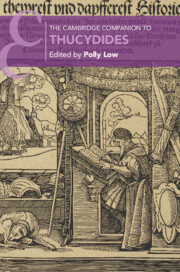Interstate Relations in Classical Greece
In this book Dr Low explores the assumptions and principles which determined the conduct and representation of interstate politics in Greece during the fifth and fourth centuries BC. She employs a wide range of ancient evidence, both epigraphic and literary, as well as some contemporary theoretical approaches from the field of International Relations. Taking a thematic rather than a chronological approach, she addresses topics such as the nature of interstate society in the Greek world; the sources, scope and enforcement of 'international law'; the nature of interstate ethics and morality; interventionism and imperialism; and the question of change and stability. She argues that classical Greece's reputation for unrestrained and unsophisticated diplomacy is undeserved, and shows that relations between Greek city-states were shaped by and judged according to a complex network of customs, beliefs and expectations which pervaded all areas of interstate behaviour.
- Encompasses the whole classical period rather than focussing on specific episodes
- Uses a wide range of evidence, especially moving away from Thucydides
- Engages with contemporary international theory
Reviews & endorsements
"Low's book achieves some considerable success in challenging the narrow focus on Thucydides alone."
-Sheila L. Ager, New England Classical Journal
"Interstate Relations in Classical Greece tackles an important topic and offers a genuinely new perspective on some longstanding problems...L[ow] offers a subtle analysis of Greek international law and practice, and succeeds in her aim to move the debate beyond the most visible structures of interstate interaction to elucidate the norms and beliefs by which Greek international life was conducted."
-Sian Lewis, University of St Andrews, Bryn Mawr Classical Review
"Not since the publication of Frank Adcock and D. J. Mosley's Diplomacy in Ancient Greece (1975) has an English-language book attempted to survey the international relations of classical Greece. Polly Low's book is a significant advance over Adcock and Mosley, her analysis deeper and more thought-provoking."
-Sarah Bolmarcich, University of Texas at Austin, The International History Review
Product details
December 2009Paperback
9780521124287
324 pages
216 × 140 × 18 mm
0.41kg
Available
Table of Contents
- Introduction
- Part I. International Relations and Ancient History:
- 1. A case study: Professor Sir Alfred Zimmern
- 2. Traditions of international relations: the history of the discipline
- 3. International relations and ancient history
- 4. Idealism, realism, and the problem of norms
- 5. Conclusion: the Ecclesia and the League of Nations
- Part II. Structuring Interstate Relations:
- 1. Introduction: society, system, and anarchy
- 2. No such thing as society? A system of reciprocal relationships
- 3. Reciprocity as the basis for a society
- 4. Multilateral societies and panhellenic communities
- 5. Conclusion: some examples
- Part III. An Anarchic Society? International Law and International Custom:
- 1. Introduction: law and society
- 2. Greek law, international law and Greek international law
- 3. The sources and scope of Greek international law
- 4. Application, enforcement and the problem of sanctions
- 5. Conclusions
- Part IV. Domestic Morality, Interstate Morality:
- 1. Introduction: a domestic analogy?
- 2. Moral language: individuals and groups, selves and others
- 3. Assumptions of and arguments for similarity
- 4. Arguments for difference? Power, self-interest and justice
- 5. Conclusions
- Part V. Norms and Politics: The Problem of Intervention:
- 1. Introduction: the importance of intervention
- 2. Helping the wronged: intervention as an ideal
- 3. Intervention, autonomy and autonomia
- 4. Intervention, imperialism and ideology
- 5. Conclusions
- Part VI. Stability and Change:
- 1. Introduction: an evaded dimension
- 2. A stable system
- 3. The problem of Thucydides
- 4. The Athenian Empire: structures, institutions and ethics
- 5. Conclusion.

